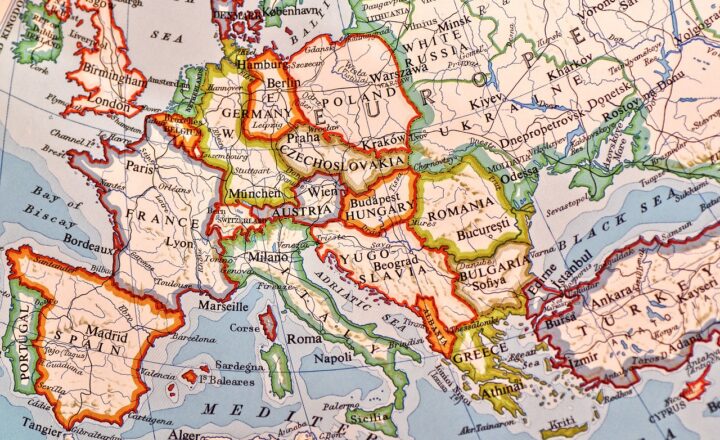How Military Bases Abroad Influence Geopolitical Strategies
November 16, 2024

The impact of military bases abroad on geopolitical strategies cannot be overstated. For centuries, nations have established military installations outside their borders to project power, secure strategic interests, and foster alliances. This article delves into the nuances of how these bases affect international relations, combat readiness, and global influence.
1. Understanding Military Bases Abroad
Military bases serve a multitude of functions, including:
- Strategic Defense: Bases are often positioned in key geographic locations to provide rapid deployment capabilities in times of crisis.
- Power Projection: The presence of military bases allows a nation to demonstrate its military capabilities to both allies and adversaries.
- Logistical Support: Bases facilitate supply chain management, enabling military units to sustain operations over extended periods.
- Intelligence Gathering: Bases often host facilities for intelligence operations, which help inform national security decisions.
- Diplomacy and Alliances: Military installations can strengthen diplomatic relationships, serving as markers of commitment to allies.
The establishment of military bases is not purely a defensive act; it is a deliberate geopolitical strategy. The locations of these bases reflect broader foreign policy goals and serve to assert influence over critical regions.
2. The Geopolitical Landscape: A Historical Perspective
Throughout history, military bases have played pivotal roles in shaping the geopolitical landscape. From the Roman Empire’s reach across Europe and North Africa to the U.S. military’s global footprint post-World War II, bases have allowed nations to extend their influence.
Consider the following historical examples:
- The Cold War Era: Following World War II, the U.S. established numerous bases in Europe and Asia to counter the Soviet threat, effectively encircling the USSR and enhancing NATO’s collective defense posture.
- The Gulf War: U.S. bases in Saudi Arabia and Qatar were crucial for operations during the Gulf War, showcasing the importance of access and proximity to conflict zones.
- Counterterrorism Operations: In the aftermath of 9/11, the U.S. expanded its military presence in the Middle East to combat terrorism, establishing bases in Afghanistan and Iraq, which facilitated rapid response to emerging threats.
These examples illustrate how military bases not only serve national interests but also influence global dynamics and power balances.
3. Present-Day Dynamics of Military Bases
Today, the U.S. operates over 800 military bases in more than 70 countries, reflecting its commitment to maintaining global supremacy. Each base represents a pillar of U.S. and international security strategy.
#### The Current Landscape:
– **Asia-Pacific Region:** Military bases in Japan and South Korea are critical for deterring North Korean aggression and reassuring regional allies. The recent pivot to Asia underscores a strategic response to the rise of China and its military expansion in the South China Sea.
– **European Allies:** Bases in Germany and the United Kingdom provide strategic advantages and bolster NATO readiness against potential threats from Russia. The increased presence of NATO forces in Eastern Europe suggests a revitalization of collective defense initiatives.
– **Middle East:** In Iraq and Syria, while some bases have downsized, others have adapted to provide logistical support and counterterrorism capabilities, reflecting ongoing instability in the region.
The geopolitical importance of these locations cannot be understated; they represent a U.S. commitment to maintaining global security and respond swiftly to evolving threats.
4. Bases and Regional Stability: A Double-Edged Sword
While military bases can enhance stability in regions, they can also be a source of tension:
#### Benefits:
– **Deterrence:** A robust military presence can deter aggressors and prevent conflicts before they escalate.
– **Support for Allies:** Bases provide critical support to regional allies, enhancing their defense capabilities and promoting stability.
– **Humanitarian Assistance:** Bases can serve as launch points for humanitarian missions and disaster relief efforts in crisis scenarios.
#### Drawbacks:
– **Sovereignty Concerns:** The presence of foreign military bases can cause resentment among host nations, often viewed as infringements of sovereignty.
– **Target for Extremism:** Bases can become targets for extremist groups, leading to a cycle of violence and retaliation.
– **Escalation of Conflicts:** Military presence can escalate tensions, making diplomatic resolutions more challenging.
Understanding these dynamics is critical for formulating effective foreign policies that balance deterrence and diplomacy.
5. Future Considerations: Evolving Strategies in an Uncertain World
As global power dynamics shift, the role of military bases may continue to evolve. New challenges such as hybrid warfare, cyber threats, and transnational terrorism compel nations to adapt their strategies:
#### Key Considerations:
– **Modernization of Facilities:** Upgrading bases to support advanced technologies and cyber capabilities will be crucial in the face of new threats.
– **Regional Partnerships:** Collaborative arrangements with host nations can enhance strategic flexibility while easing sovereignty tensions.
– **Response to Climate Change:** As geopolitical stressors multiply due to climate change, military bases may play a role in responding to natural disasters and humanitarian crises.
The future trajectory of military bases will depend on the ability of nations to navigate an increasingly complex global landscape while effectively managing relationships with allies and adversaries alike.
Conclusion
In conclusion, military bases abroad are vital instruments of geopolitical strategy. They enable nations to project power, deter adversaries, and foster relationships with allies. However, the implications of military installations are multifaceted, requiring careful consideration of their role in regional stability and international security.
As tensions rise and new challenges emerge, the strategic importance of these bases will continue to be a focal point in global politics. To navigate this complex landscape, nations must balance their military commitments with diplomatic efforts to foster stability and peace.







